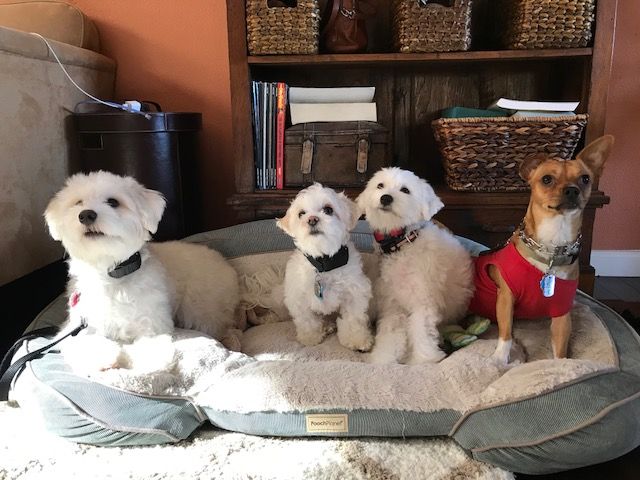Training your dog is a crucial aspect of ensuring they grow into a well-behaved, happy, and socialized pet. One of the most common questions new dog owners ask is: What age is best to start dog training? The answer is pretty straightforward… the second you meet your dog, training begins. Everything you do your dog is observing, absorbing and learning, so the time is now! Here is an abbreviated rough idea as far as what and when to train dogs during different times in their development:
Puppyhood: The Foundation Stage (8-16 Weeks)
- When to Start: As early as 8 weeks old.
- Focus: Socialization, basic commands, house training.
Starting training during the early weeks of a puppy's life is crucial. Puppies are like sponges at this age, absorbing everything around them. The period between 8 to 16 weeks is often referred to as the critical socialization period.
- Socialization: Expose your puppy to a variety of people, environments, sounds, textures, etc. to build their confidence and reduce fearfulness.
- Basic Commands: This is the time to establish leadership and basic manners as well as how to listen to you, follow you, set boundaries, etc. You can also begin to teach simple commands like sit, stay, come, and learn their name.
- House Training: Begin potty training and establish a routine to prevent accidents in the house.
Adolescence: Building on the Basics (4-6 Months)
- When to Start: Continue from puppyhood into adolescence.
- Focus: Reinforcing basic commands, leash training, addressing minor behavioral issues.
As your puppy grows into adolescence, their behavior and training needs will evolve. This stage is essential for reinforcing the training introduced during puppyhood.
- Reinforcement: Continue practicing and reinforcing basic commands.
- Leash Training: Teach your dog to walk on a leash without pulling.
- Behavioral Training: Address any emerging behavioral issues, such as jumping on people or chewing on furniture.
Adulthood: Advanced Training and Refinement (6 Months and Older)
- When to Start: From 6 months onwards.
- Focus: Advanced commands, specialized training, behavior modification.
By the time your dog reaches adulthood, they should have a solid foundation of basic commands and good behavior. This is the time to introduce more advanced training and address any persistent behavioral issues.
- Advanced Commands: Teach more complex commands and tricks, such as roll over, fetch, or agility training.
- Behavior Modification: Work on any lingering behavioral problems, such as separation anxiety or excessive barking.
Older Dogs: It’s Never Too Late!
- When to Start: Anytime, especially if adopting an older dog.
- Focus: Basic commands, house training, behavior adjustment.
If you adopt an older dog, it’s important to start training as soon as possible, regardless of their age. Older dogs can learn new tricks and adapt to new environments, though it may take a bit more time and patience.
- Basic Commands: Ensure your dog knows basic commands and proper house manners.
- House Training: Establish a routine and provide consistent training for housebreaking if needed.
- Behavior Adjustment: Address any existing behavioral issues with patience and positive reinforcement.
Tips for Successful Dog Training at Any Age
- Consistency: Be consistent with commands, rules, and rewards. This helps your dog understand what is expected of them and reinforces positive behavior.
- Patience: Training takes time, especially with older dogs. Be patient and persistent.
- Reinforcement: Use treats, praise, and play as rewards to encourage good behavior. Use proper punishment to communicate behaviors you want to extinguish
- Short Sessions: Keep training sessions short and fun to maintain your dog’s interest and prevent frustration and over exhaustion.
Start early, be consistent, have fun and keep training!

